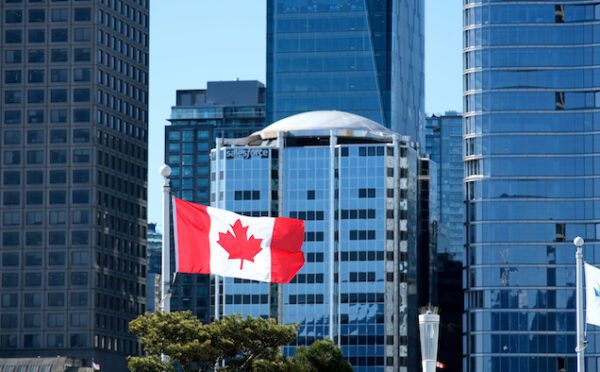Authors
Partner, Disputes, Toronto
Counsel, Disputes, Toronto
Associate, Disputes, Toronto
In a development reflective of his widely reported skepticism of the Foreign Corrupt Practices Act (FCPA), U.S. President Donald Trump has directed the Department of Justice (DOJ) to temporarily pause their enforcement of the FCPA. The executive order also directs the U.S. Attorney General to revisit its enforcement guidance under the FCPA, with a view to prioritizing American economic interests. This news may mark a significant shift in the U.S.’s historically aggressive track record of enforcing foreign bribery laws against U.S. and foreign players alike, and potentially leave a gap in global enforcement over foreign corruption.
U.S. pauses DOJ’s enforcement of FCPA
The FCPA is the principal statute in the U.S. governing foreign corruption and bribery. Like the Canadian equivalent Corruption of Foreign Public Officials Act (CFPOA), it makes it a domestic offence to engage in foreign bribery overseas. Specifically, the FCPA and CFPOA prohibit making or offering corrupt payments to foreign public officials and hiding bribery through false or deficient accounting practices. Canadian businesses are not immune from investigation and prosecution under the FCPA: in addition to being subject to the CFPOA, Canadian companies may also be subject to the FCPA if, among other things, they conduct business in the U.S. or are traded on U.S. exchanges.
Pursuant to President Trump’s executive order, the U.S. Attorney General will have a 180-day period (which may be extended by an additional 180 days) to
- “review in detail all existing FCPA investigations or enforcement actions and take appropriate action with respect to such matters to restore proper bounds on FCPA enforcement and preserve Presidential foreign policy prerogatives”
- “issue updated guidelines or policies, as appropriate, to adequately promote the President’s Article II authority to conduct foreign affairs and prioritize American interests, American economic competitiveness with respect to other nations, and the efficient use of Federal law enforcement resources”
During this 180-day period, the DOJ cannot initiate any new FCPA investigations or enforcement actions, save for individual exceptions.
For now, no changes have been announced to the ability or strategy of the U.S. Securities and Exchange Commission (SEC) to pursue civil enforcement actions under the FCPA’s anti-bribery and accounting provisions against companies with publicly traded securities in the U.S.
Enforcement under the FCPA and CFPOA
The FCPA was enacted in 1977 following revelations of illegal campaign contributions while investigating the Watergate scandal, money laundering through foreign countries and “questionable” corporate payments to foreign and domestic public officials. It was watershed legislation by, for the first time, creating a domestic offence for bribery of government officials overseas. Following lobbying by the U.S. — motivated by concerns that U.S. companies would not be competitive with those in companies where foreign corruption remained permissible — the OECD Convention on Combating Bribery of Foreign Public Officials in International Business Transactions (the OECD Convention) was enacted in 1997 requiring signatory countries to maintain and enforce their own legislation prohibiting foreign corruption. Pursuant to its obligations under the OECD Convention, Canada enacted its own foreign bribery legislation (the CRPOA) in 1998.
Since that time, the U.S. has been the global leader in foreign bribery enforcement, taking an aggressive approach that has seen companies routinely fined in the hundreds of millions of dollars. The U.S.’s enforcement of the FCPA has been long hailed by advocacy groups as the “gold standard in the fight against corruption.” These aggressive enforcement efforts have notably targeted foreign entities in particular, with nearly all of the largest monetary sanctions imposed under the FCPA being against non-U.S. companies.
In contrast, Canada has historically been criticized for a perceived lack of anti-corruption enforcement. Notably, as we have previously written, the recent result of the OECD’s Working Group on Bribery in International Business Transactions report of its Phase 4 evaluation of Canada’s performance under the OECD Convention were scathing. It found that enforcement of foreign bribery remained “exceedingly low” considering the size of Canada’s economy and the industrial sectors in which its companies operate.
Notably, the U.S. and Canada have adopted significantly different approaches to investigating and prosecuting corruption and financial crime. In Canada, foreign corrupt practices are largely the purview of federal law enforcement (i.e., the RCMP). In the U.S., meanwhile, enforcement of similar activity is often undertaken in partnership by capital markets regulators and federal prosecutors. The FCPA, in particular, is enforced criminally by the DOJ and civilly by the SEC.
Potential implications
It remains to be seen how the executive order will impact the business activities and climate for U.S., Canadian and global stakeholders.
Domestically, the U.S. Attorney General has not yet stated how it will interpret the direction from the current U.S. administration to recast the DOJ’s enforcement strategy to prioritize American interest. It is also unclear whether a claw-back of U.S. enforcement efforts will become more permanent.
Globally, given the U.S.’s leadership position in the international community with respect to foreign bribery enforcement (and its strong deterring presence for U.S. and foreign entities alike), such a shift in its approach could weaken foreign bribery enforcement worldwide. It may be up to other countries — including traditionally stronger enforcers like the U.K., as well as weaker ones like Canada — to step in and fill in the gaps left by the U.S. in their own countries. Notably, President Trump expressed that the FCPA created an uneven playing field for U.S. corporations compared to their counterparts in jurisdictions without significant corruption enforcement — one of the primary concerns leading to U.S. lobbing and enactment of the OECD Convention in the first place. This begs the question of whether pushing perceived laggards such as Canada to ramp up enforcement may play into the U.S. administration’s decision.
In either case, by temporarily halting enforcement of the FCPA while this review is ongoing, the current U.S. administration’s approach may have implications for the U.S.’s commitments as a signatory under the OECD Convention and its reputation as a global leader in the enforcement of foreign bribery.

